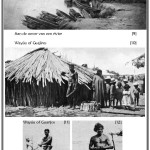Matias Echanove & Rahul Srivastava – Mumbai’s Homegrown Cities Project: Upgrade The Slums, Don’t Destroy Them!
No comments yetblogp2pfoundation.net. July 5, 2013.
Bhandup is a hill-side neighborhood. In the distance we can see the presence of high-rise buildings. Some of them are up-market others are cheaply built “slum rehabilitation schemes.”
Like John F.C. Turner, the British born architect who in the 1970s and 1980s influenced some of the World Bank’s most progressive urban programs, we believe that decision-making and initiatives on housing related issues is better left at the local level. This is especially true in contexts such as Mumbai, where government-led schemes and incentives to the private sectors have blatantly failed to provide both quantity and quality when it comes to affordable housing.
Unfortunately, none of Turner’s ideas have any currency left in the context of Mumbai’s booming (sur)real estate market. Public land is seen as too valuable to be left to the poor. Slums are no longer upgraded and discussions on the “right to housing” seem anachronistic. Entire neighbourhoods are wiped off the map and replaced by monofunctional housing blocks that represent the degree zero of architectural, urban and social thinking. What is happening is precisely the kind of man-made disasters that Turner was denouncing in the 1960s and 1970s! All over again.
For the past 6 to 7 years, URBZ has been working is parts of Mumbai hugely disservice and misrepresent by the “slum” label affixed to them. It doesn’t help them get urgent support and planning. Quite on the contrary, it puts them on the map as raw material for redevelopment, and at the end of the queue for municipal services. The “slum” label also perpetuates a hugely negative image that is often far from what residents and visitor can experience.
http://blog.p2pfoundation.net/upgrade-the-slums-dont-destroy-them
You May Also Like
Comments
Leave a Reply





